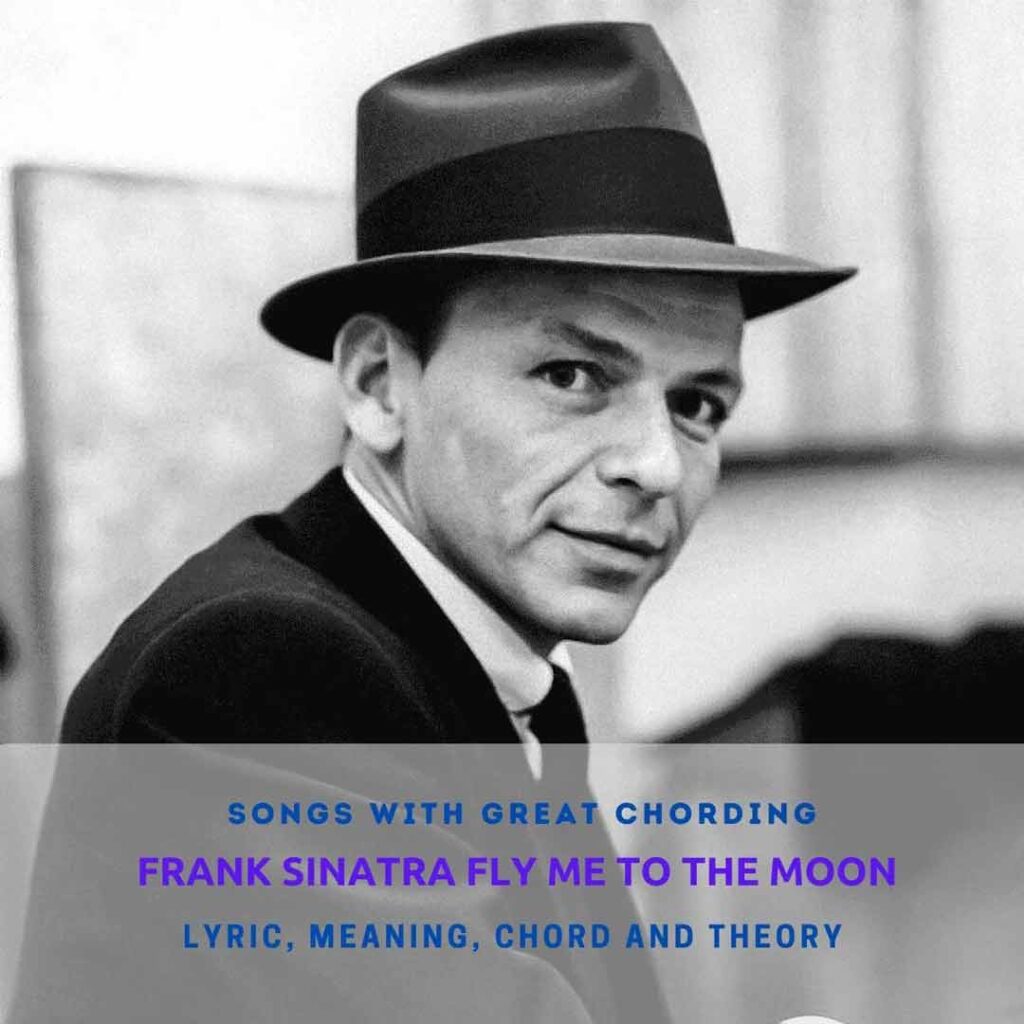Song History:
“Fly Me to the Moon” was originally titled “In Other Words” and was written by Bart Howard in 1954. The song was first performed by Felicia Sanders at the Bon Soir nightclub in New York City, and was soon picked up by other performers.
The song’s popularity grew throughout the 1960s, with numerous recordings by artists such as Kaye Ballard, Peggy Lee, and Julie London. However, it was Frank Sinatra’s recording of the song in 1964 that cemented its place as a classic.
Sinatra’s recording was part of his album “It Might As Well Be Swing,” which was a collaboration with Count Basie and his orchestra. The album was a critical and commercial success, and “Fly Me to the Moon” became one of Sinatra’s most popular songs.
Over the years, the song has been covered by many other artists, and has been featured in numerous films, TV shows, and advertisements. It has become a beloved classic, known for its romantic lyrics and dreamy melody, and is often associated with the golden age of American popular music.
Frank Sinatra Fly Me To The Moon Song Meaning:
“Fly Me to the Moon” is a classic song originally written by Bart Howard in 1954. The song has been recorded by many artists, but perhaps most famously by Frank Sinatra.
The song’s lyrics describe a person’s desire to be taken away to a place where they can experience romantic moments with their partner. The opening lines, “Fly me to the moon, let me play among the stars” suggest a desire to escape the earthly world and experience something magical and otherworldly. The lyrics go on to describe the desire to hold hands, share a kiss, and experience all the wonderful things that life and love have to offer.
The song’s lyrics are poetic and dreamy, expressing a sense of romantic longing and escapism. The song has become a timeless classic and is often associated with the idea of romance and the possibility of achieving one’s dreams.
Frank Sinatra Fly Me To The Moon Chording:
Am * Dm7 G7 Cmaj7 ** Fly me to the moon, let me play among the stars, F * Dm E7 Am A7 Let me see what spring is like on Jupiter and Mars, Dm7 G7 C Am In other words, hold my hand! Dm7 G7 C E In other words, baby kiss me! Am Dm7 G7 Cmaj7 Fill my heart with song, and let me sing forever more F Dm * E Am A7 you are all I long for all I worship & adore Dm7 G7 C Am E7 In other words, please be true! Dm7 G7 Fm C In other words I love you Am Dm7 G7 Cmaj7 F Dm E Am Dm7 G7 Em A7 E7 Dm7 G7 C Am Dm7 G7 Cmaj7 Fill my heart with song, and let me sing forever more F Dm E Am A7 you are all I long for all I worship & adore Dm7 G7 C Am In other words, please be true! Dm7 G7 In other words Dm7 G G7 C In other words I love you!
Chord Theory:
The chords in the verse are:
- C (C major): I chord, establishes the key of the song
- Cmaj7 (C major seventh): a variation of the I chord
- C6 (C major sixth): a variation of the I chord
- F (F major): IV chord, provides contrast and movement
- Fm7 (F minor seventh): a variation of the IV chord
- C7 (C dominant seventh): V7 chord, creates tension and resolution
- Dm7 (D minor seventh): ii chord, leads to the V7 chord
- G7 (G dominant seventh): V7 chord, resolves to the I chord
- A7 (A dominant seventh): a variation of the V7 chord
The chords in the bridge are:
- E7 (E dominant seventh): V7 chord of the relative minor key, A minor
- Am7 (A minor seventh): ii chord in the key of G major, relative major of E minor
- D7 (D dominant seventh): V7 chord in the key of G major
- G7 (G dominant seventh): V7 chord, resolves to C major
- Dm7 (D minor seventh): ii chord, leads to the V7 chord
Overall, the song uses a mix of basic chords and more complex chords. But the main chord progression is a ii – V – I progression in the key of C major. The bridge also introduces chords from related keys, adding interest and variety to the song.
Also check: Songs with great chording – Stand tall by Burton Cummings
